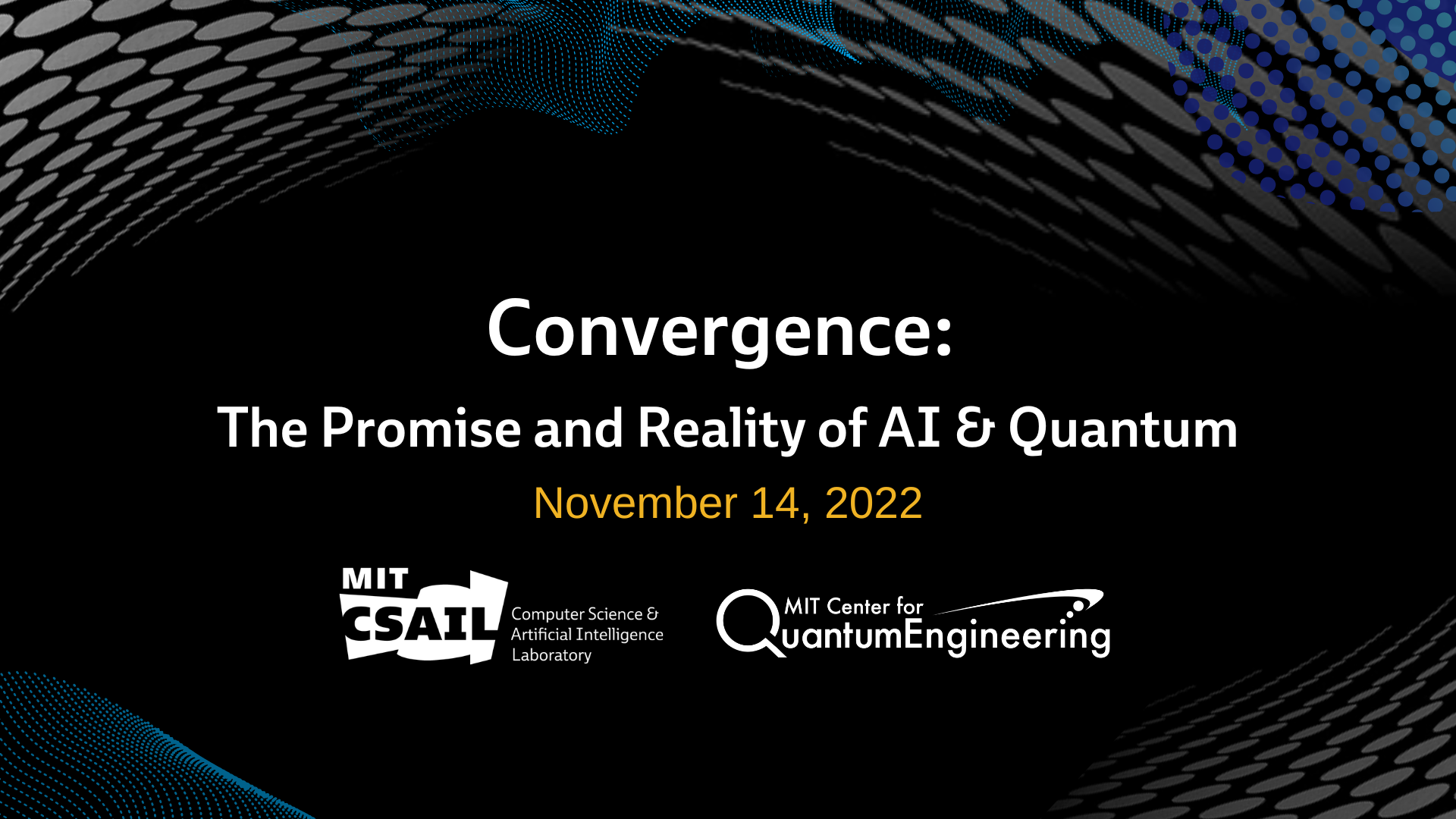Daniela Rus is the Andrew (1956) and Erna Viterbi Professor of Electrical Engineering and Computer Science and Director of the Computer Science and Artificial Intelligence Laboratory (CSAIL) at MIT. Rus’s research interests are in robotics, mobile computing, and data science. Rus is a Class of 2002 MacArthur Fellow, a fellow of ACM, AAAI and IEEE, and a member of the National Academy of Engineering, and the American Academy for Arts and Science. She earned her PhD in Computer Science from Cornell University.
Image

William D. Oliver is appointed the Henry Ellis Warren (1894) Professor of Electrical Engineering and Computer Science, Professor of Physics, and Lincoln Laboratory Fellow at the Massachusetts Institute of Technology. He serves as the Director of the Center for Quantum Engineering and as Associate Director of the Research Laboratory of Electronics. He is a Principal Investigator in the Engineering Quantum Systems Group (MIT campus) and the Quantum Information and Integrated Nanosystems Group (MIT Lincoln Laboratory). He provides programmatic and technical leadership targeting the development of quantum and classical high-performance computing technologies. Will’s research interests include the materials growth, fabrication, design, and measurement of superconducting qubits, as well as the development of cryogenic packaging and control electronics involving cryogenic CMOS and single-flux quantum digital logic. Will is a Fellow of the American Physical Society and a Senior Member of the IEEE. He serves on the National Quantum Initiative Advisory Committee, the US Committee for Superconducting Electronics, and is an IEEE Applied Superconductivity Conference (ASC) Board Member. Will received his Ph.D. in Electrical Engineering from Stanford University, his M.S. in Electrical Engineering and Computer Science from MIT, and a B.S. in Electrical Engineering and B.A. in Japanese from the University of Rochester (NY).
Image
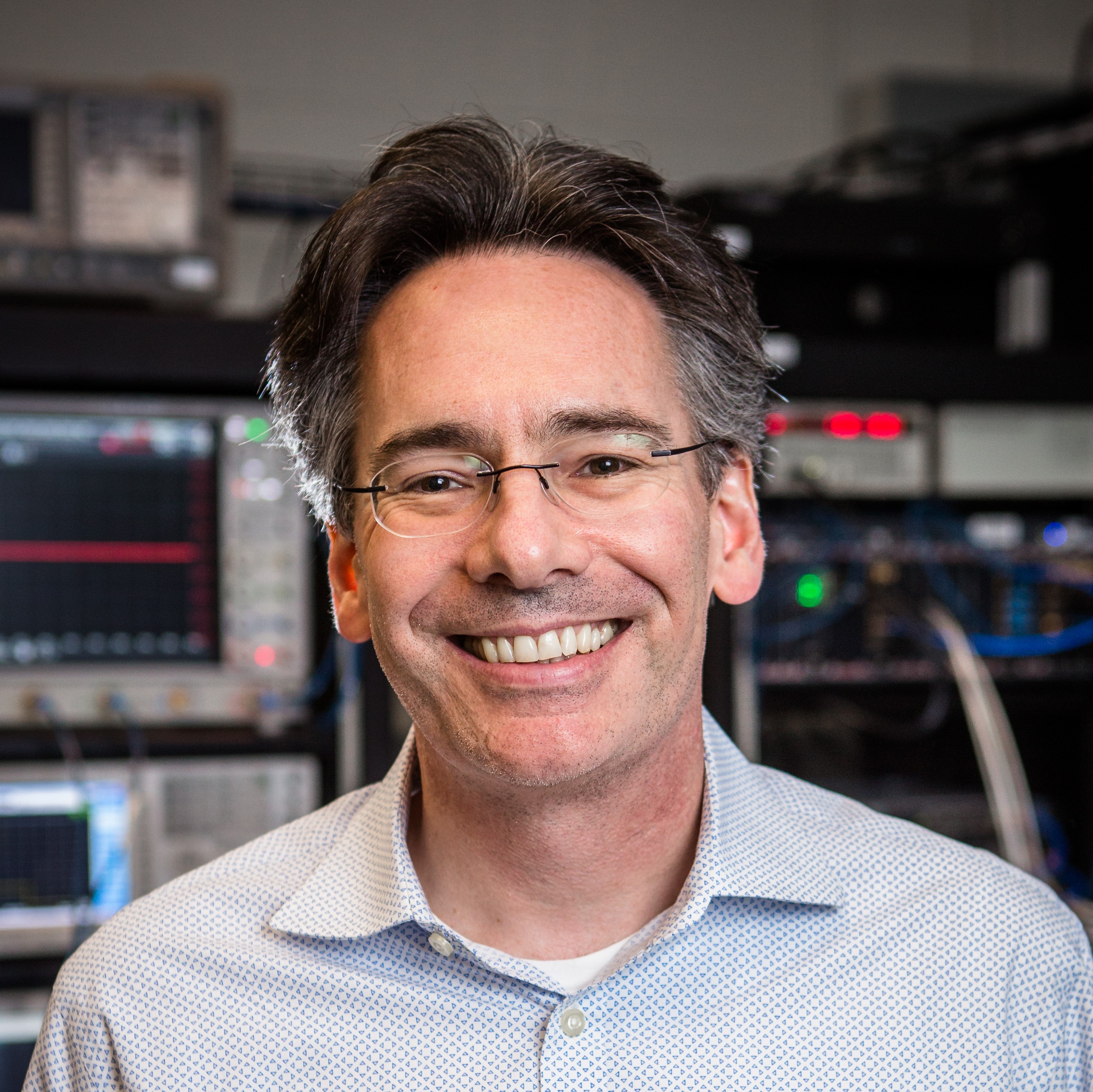
Yudong Cao has a background in Mechanical Engineering and Computer Science. He obtained his Ph.D. in Computer Science from Purdue University in 2016, and after graduation, he joined the Aspuru-Guzik group at Harvard University. The main focus of Yudong’s work at Harvard was on developing and deploying algorithms for noisy intermediate-scale quantum devices. This work has served as the foundation for the applications and solutions Zapata can offer their enterprise clients today. Today, Yudong continues to work on developing quantum and quantum-inspired algorithms for near-term applications.
Image

Michael Carbin is the Jamieson Career Development Assistant Professor of Electrical Engineering and Computer Science at the Massachusetts Institute of Technology. His primary research focus is the design of programming systems that manipulate system uncertainty to deliver improved performance, energy consumption, and resilience. Uncertainty — in the form of sampled and sensed values, dynamic computation structure, and intermittently available computing — is a first-order challenge in modern computing systems. His research on verifying the reliability of programs that execute on unreliable hardware has received best paper awards at leading programming languages conferences (OOPSLA 2013 and OOPSLA 2014) as well as a Communications of the ACM Research Highlight in 2016. He has also published work at leading programming languages and systems conferences, including PLDI, OOPSLA, ASPLOS, LICS, SOSP, ICSE, and PPoPP.
Image
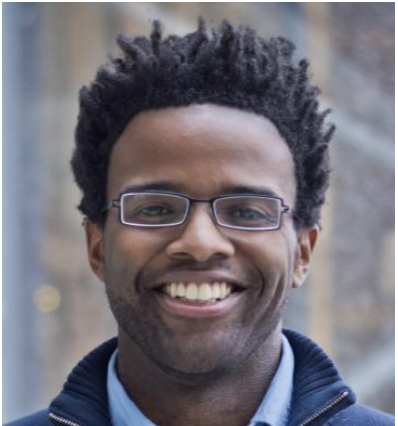
Shouvanik Chakrabarti is an Applied Research Lead in the Global Technology Applied Research Center at JPMorgan Chase and Co. His research interests are based on the development of quantum algorithms for tasks in optimization and machine learning, and their applications to problems on financial engineering. Problems that his work has contributed to include the study of quantum algorithms for convex optimization, classification, integration, generative learning, derivative pricing, and portfolio optimization. Before starting at JPMorgan Chase, he obtained his Ph.D. in Computer Science from the University of Maryland at College Park in 2022.
Image

Prof. Chuang is a pioneer in the field of quantum information science. His experimental realization of two, three, five, and seven quantum bit quantum computers using nuclear spins in molecules provided the first laboratory demonstrations of many important quantum algorithms, including Shor’s quantum factoring algorithm. The error correction, algorithmic cooling, and entanglement manipulation techniques he developed provide new ways to obtain complete quantum control over light and matter, and lay a foundation for possible large-scale quantum information processing systems. Prof. Chuang came to MIT in 2000 from IBM, where he was a research staff member. He received his doctorate in Electrical Engineering from Stanford University, where he was a Hertz Foundation Fellow. Prof. Chuang also holds two bachelors and one masters degrees in Physics and Electrical Engineering from MIT, and was a post-doctoral fellow at Los Alamos National Laboratory and the University of California at Berkeley. He is the author, together with Michael Nielsen, of the textbook Quantum Computation and Quantum Information.
Image
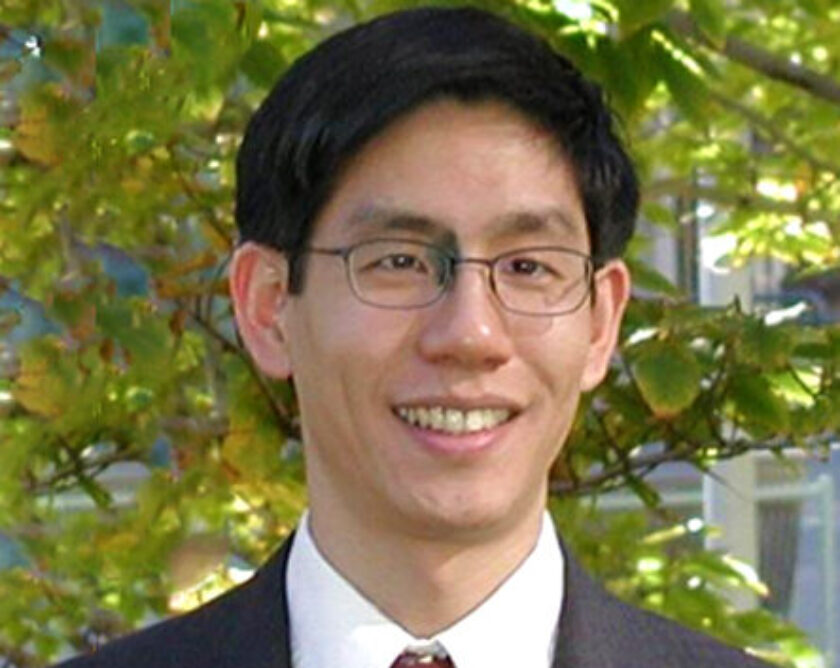
Douglas Hamilton works across business units at Nasdaq to deploy artificial intelligence anywhere the technology can expedite or improve processes related to global trading.
Image
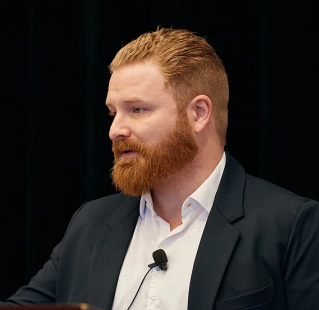
Jeff Grover is a Research Scientist in the EQuS group. He focuses on software infrastructure and building extensible calibration, control, and metrology protocols for multi-qubit systems. Prior to joining EQuS, he spent 5 years in industry – 3 years as a Senior Physicist at Northrop Grumman working on quantum annealing in collaboration with MIT Lincoln Laboratory, and 2 years as a Senior Data Scientist at athenahealth applying machine learning to healthcare. He also had an earlier stint in EQuS in 2015 as a Postdoctoral Associate, where he used JTWPAs to generate broadband quantum-correlated radiation towards improving qubit readout.
Jeff received his PhD in Physics from the Joint Quantum Institute at the University of Maryland in 2015. He graduated from Amherst College in 2009, majoring in Physics and Mathematics.
Jeff received his PhD in Physics from the Joint Quantum Institute at the University of Maryland in 2015. He graduated from Amherst College in 2009, majoring in Physics and Mathematics.
Image
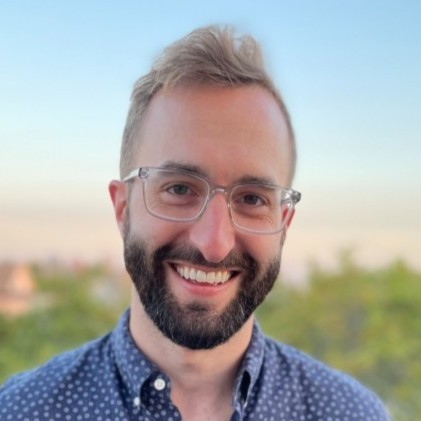
Aram Harrow is a Professor of Physics at MIT where he has worked since 2013. Previously he worked at the University of Bristol and the University of Washington. He was the recipient of a 2009 APS Outstanding Referee Award, a 2015 NSF CAREER award, a 2017 IEEE Information Theory Society Best Paper Award, the 2018 Rolf Landauer and Charles H Bennett Award in Quantum Computing award from the APS, and a 2020 Applied NISQ Computing paper award from USRA-Q2B. His research is on theoretical quantum computing and quantum information.
Image

Manolis Kellis is an Associate Professor of Computer Science at MIT, a member of the Computer Science and Artificial Intelligence Laboratory and of the Broad Institute of MIT and Harvard, where he directs the MIT Computational Biology Group (compbio.mit.edu). His group has recently been funded to lead the integrative analysis efforts of the modENCODE project for Drosophila melanogaster, and also for integrative analysis of the NIH Epigenome Roadmap Project. He has received the US Presidential Early Career Award in Science and Engineering (PECASE) for his NIH R01 work in Computational Genomics, the NSF CAREER award, the Alfred P. Sloan Fellowship, the Karl Van Tassel chair in EECS, the Distinguished Alumnus 1964 chair, and the Ruth and Joel Spira Teaching Award in EECS. He was recognized for his research in genomics as one of the top young innovators under the age of 35 by Technology Review Magazine, one of the principal investigators of the future by Genome Technology magazine, and one of three young scientists representing the next generation in biotechnology by the Boston Museum of Science. He obtained his Ph.D. from MIT, where he received the Sprowls award for the best doctorate thesis in computer science, and the first Paris Kanellakis graduate fellowship. Prior to computational biology, he worked on artificial intelligence, sketch and image recognition, robotics, and computational geometry, at MIT and at the Xerox Palo Alto Research Center. He lived in Greece and France before moving to the US.
Image
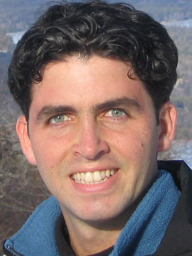
Kathleen is currently the Executive Director of the MIT Center for Collective Intelligence, a multidisciplinary research center. She is also the senior director of MIT Horizon, a digital learning platform helping global organizations to up-skill on AÍ and emerging technologies. She has held several leadership positions at MIT, including President and Chief Strategy Officer of Technology Review, MIT’s global media company; President of the MIT Enterprise Forum; and Director of Special Projects of MIT, where she worked as a lead organizer of The Engine, a venture fund and accelerator program for tough tech startups. She is a cofounder and board member of Manifest Boston (formally HubWeek). She has served on numerous selection committees including the Eisenhower Fellowships, the Lemelson-MIT prize and the MacArthur Foundation 100&Change competition. She is a mentor for MIT DesignX. She was awarded the Folio: 40, which recognizes the most innovative and influential people in the media industry, and named by the Women of the Harvard Club as one of Boston’s Most Influential Women.
Image
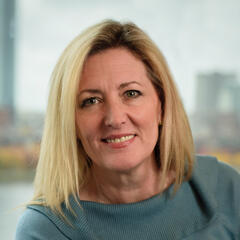
Professor Samuel Madden, a Professor of Electrical Engineering and Computer Science and principal investigator in MIT CSAIL, leads the BigData@CSAIL initiative and the Data Systems Group. He investigates issues related to systems and algorithms for data that is high rate, massive, or complex. The goal of his research is to help people access different types of data through building interfaces that let them interact with or query that data.
Image
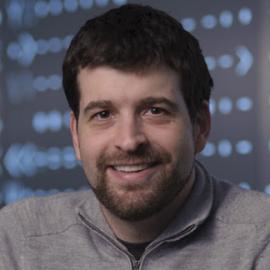
Tim is a co-founder and Chief Operating Officer of Atlantic Quantum, which is a spinout of the Engineering Quantum Systems Group at MIT. He previously received his PhD in Physics from Harvard, during which he was jointly supervised by Prof. William Oliver at MIT and Prof. Alan Aspuru-Guzik at Harvard. His PhD research was situated at the intersection of computational modeling and experimental implementation of quantum computing. He received his M.Sc. in Physics with distinction from ETH Zurich before coming to the US. Tim’s scientific articles have gathered over 1,000 citations. He brings his experience from interning at McKinsey & Company, completing a summer MBA with the Harvard Business School, and leading several policy conferences at Harvard to his COO role at Atlantic Quantum.
Image

Kevin joined MIT EECS and RLE in Fall 2018. His research focuses on engineering nonlinear and quantum-mechanical light-matter interactions using superconducting circuits. The goals are twofold: to explore quantum mechanics in engineered systems such as metamaterials and to develop the quantum technology necessary for quantum computing to be successful. He received a BS in physics from Purdue University, a PhD in physics from UC Berkeley, and completed postdoctoral work at the UC Berkeley developing high-coherence superconducting quantum processors.
Image
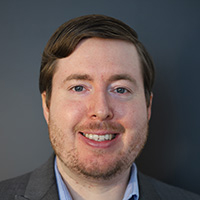
Michael Rappaport is currently the Head of Emerging Technology for Global Functions Innovation at HSBC. Michael has over 10 years experience in the Financial Services, both in Management Consulting and in-house. As a consultant, Michael focused on Banking Strategy for large scale transformation programs. In industry, Michael has had several management roles including Chief of Staff, M&A Execution and Business Management and his most recent in innovation.
Image
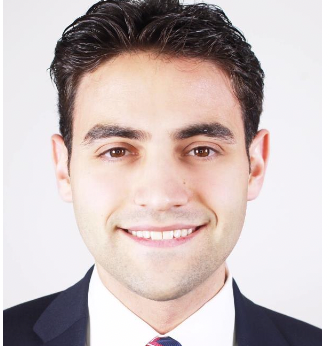
Peter Shor is the Morss Professor of Applied Mathematics and Chair of the Applied Mathematics Committee in MIT’s Department of Mathematics. His current research interests are in theoretical computer science: on algorithms, quantum computing and combinatorics. He is a fellow of the American Academy of Arts and Sciences, a member of the National Academy of Science and a recipient of a MacArthur Foundation Fellowship. He has also received a Gödel Prize, Micius Quantum Prize, and a King Faisal International Prize in Science. He earned a BA in mathematics from the California Institute of Technology, and a PhD in applied mathematics from MIT.
Image
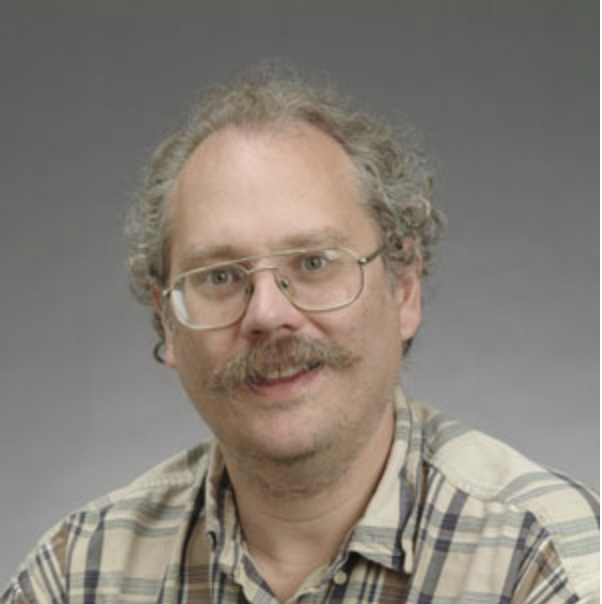
Kalyan is a Principal Research Scientist in the Laboratory for Information and Decision Systems (LIDS,MIT). He leads a group called Data-to-AI. The group is interested in Big data science, Machine learning and developing AI applications to address societal needs. His primary research interests are in building statistical models that enable extraction of information from large amounts of data.
Image
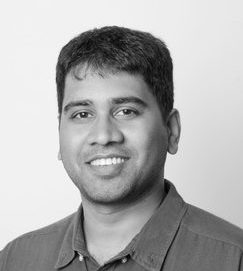
Professor Vladan Vuletić was born in Pec, Yugoslavia, and educated in Germany. In 1992, he earned the Physics Diploma with highest honors from the Ludwig-Maximilians-Universität München, and in 1997, a Ph.D. in Physics (summa cum laude) from the same institution. While a postdoctoral researcher with the Max-Planck Institute for Quantum Optics in Garching, Germany, Professor Vuletić accepted a Lynen Fellowship at Stanford University in 1997. In 2000, he was appointed an Assistant Professor in the Department of Physics at Stanford and in June 2003 accepted an Assistant Professorship in Physics at MIT. He was promoted to Associate Professor in July 2004. He was promoted to Full Professor in July 2011.
Image

Shengtao Wang is leading the algorithms & applications team at QuEra Computing, which is a neutral-atom quantum computing startup based in Boston. At QuEra, Shengtao focuses on developing both near-term and long-term applications of neutral-atom quantum devices. Prior to joining QuEra, Shengtao did his PhD at the University of Michigan working with Prof. Luming Duan and a postdoc with Prof. Mikhail Lukin at Harvard, during which his research interests were in near-term quantum algorithms and quantum simulations with trapped ion and cold atom platforms.
Image

Marcin Ziolkowski is a researcher in BMW Group focusing on emerging technologies. He is interested in machine learning, accelerated and quantum computing, numerical methods and algorithms development. Prior to joining BMW, Marcin was part of Clemson University IT group supporting high performance and data intensive computing for research. Marcin holds a PhD in Theoretical Chemistry from University of Aarhus.
Image

Henriette Fleischmann is the co-founder & COO of Hosta a.i. She holds a bachelor's degree in Business Administration from the European University Viadrina in 2008 (Germany, Argentina). After graduating in 2008, Henriette focused on strategy -, business -, and organizational development, starting in Automotive (Daimler in Germany and Japan), continuing in consultancy (Porsche Consulting – projects in Germany, Czech, US), and resulting in the Head of Strategy Office position at one of Europe’s leading fashion retailer (Germany). Hosta a.i. launched in February 2020, with technology developed by founder Rachelle Villalon, an architect who earned her Ph.D in computation and design at the Massachusetts Institute of Technology (MIT) in Cambridge, Mass. Her goal was to use artificial intelligence (AI) to solve property assessment goals, and the resulting product uses state-of-the-art technology to automate property assessments relying on just a few photos, according to the company’s website.
Image
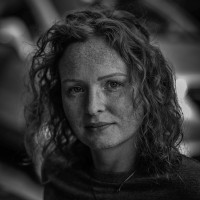
Learn More
On November 14th, experts from academia and industry gathered at MIT to discuss the state of AI and quantum technologies, exploring what is real, what is hype, and what is coming next.
Image
